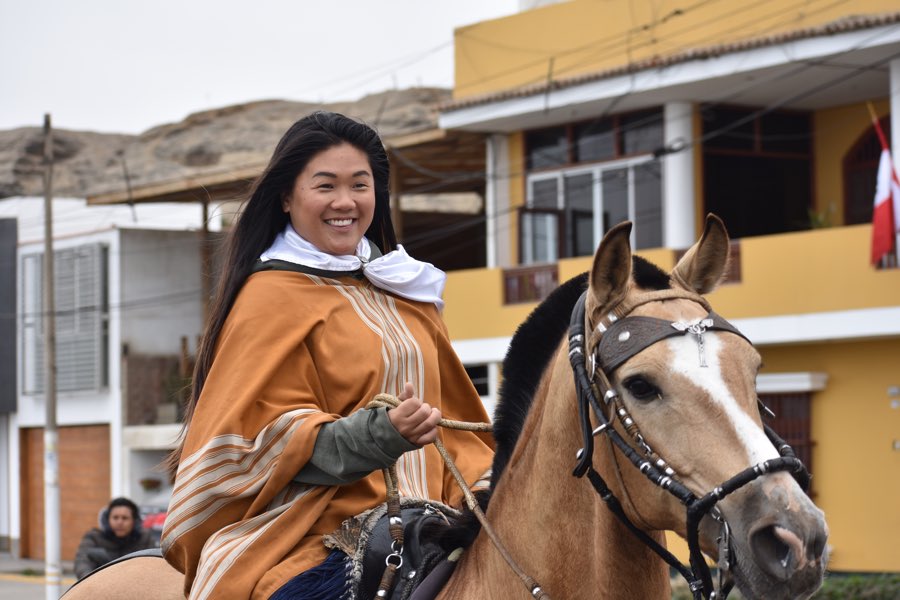Want to discover the rural activities in Tucume, a small village on the coast in Northern Peru, during your trip? You may want to share a moment with the villagers.
To do this, the village of Tucume offers different activities discovery and culture. We are in the department of Lambayeque, 30 kilometers from Chiclayo, in northern Peru. You will participate in these activities to meet the local population. They will make you discover with pleasure their traditions, if it should be to cook the Pachamanca, to party with the “Diablicos” or to practice dyeing on cotton.
1st day of activities in Tucume : Visit of the Pyramids and evening activity with the diáblicos
Visit of the Pyramids and lunch at the inhabitant
Your first activity will begin around 8 o’clock in the morning. Your guide will pick you up at your hotel. You have to take advantage of the “coolness” of the morning to visit in the best conditions. This incredible archaeological site of the Pyramids of Tucume is located a few kilometers from the coast. This mystical and almost desert place will transport you to another dimension.
After touring the Pyramids, you will visit the Tucume museum. In this small museum, you will better understand the civilization of the people “Lambayeque” and “Chimu”. They dominated the region before the arrival of the Incas in the second half of the 15th century.
Then you will go to Lambayeque Temple “Las Balsas” (15 minutes walk from the museum). You will be struck by the incredible frescoes carved in the sand in tribute to the marine deities including this civilization.
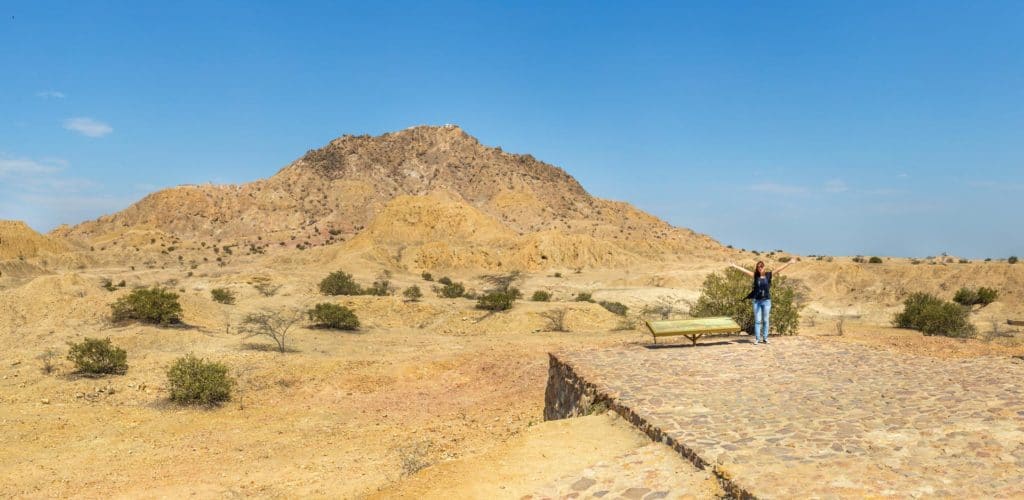
After this morning rich in archaeological lessons, it will be time to visit your hosts for lunch. Perhaps you will go to the cultural café of Pedro Rivera, President of the Cultural Tourism Association of Tucume. He will be happy to welcome you and to exchange with you.
Festive activity with the masks of “Diàblicos”
After the meal, you can give yourself a well deserved rest. At the end of the afternoon, when the heat will decline, you will participate in a festive activity of Tucume: the masks of Diàblicos.
Cesar will welcome you in his workshop. He will explain this ancestral tradition of this region of northern Peru. Cesar will help you to make your own mask, one of the specific rural activities of the region. You will then be entitled to a demonstration of the traditional dance of “Diàblicos”. A festive moment and unforgettable sharing.
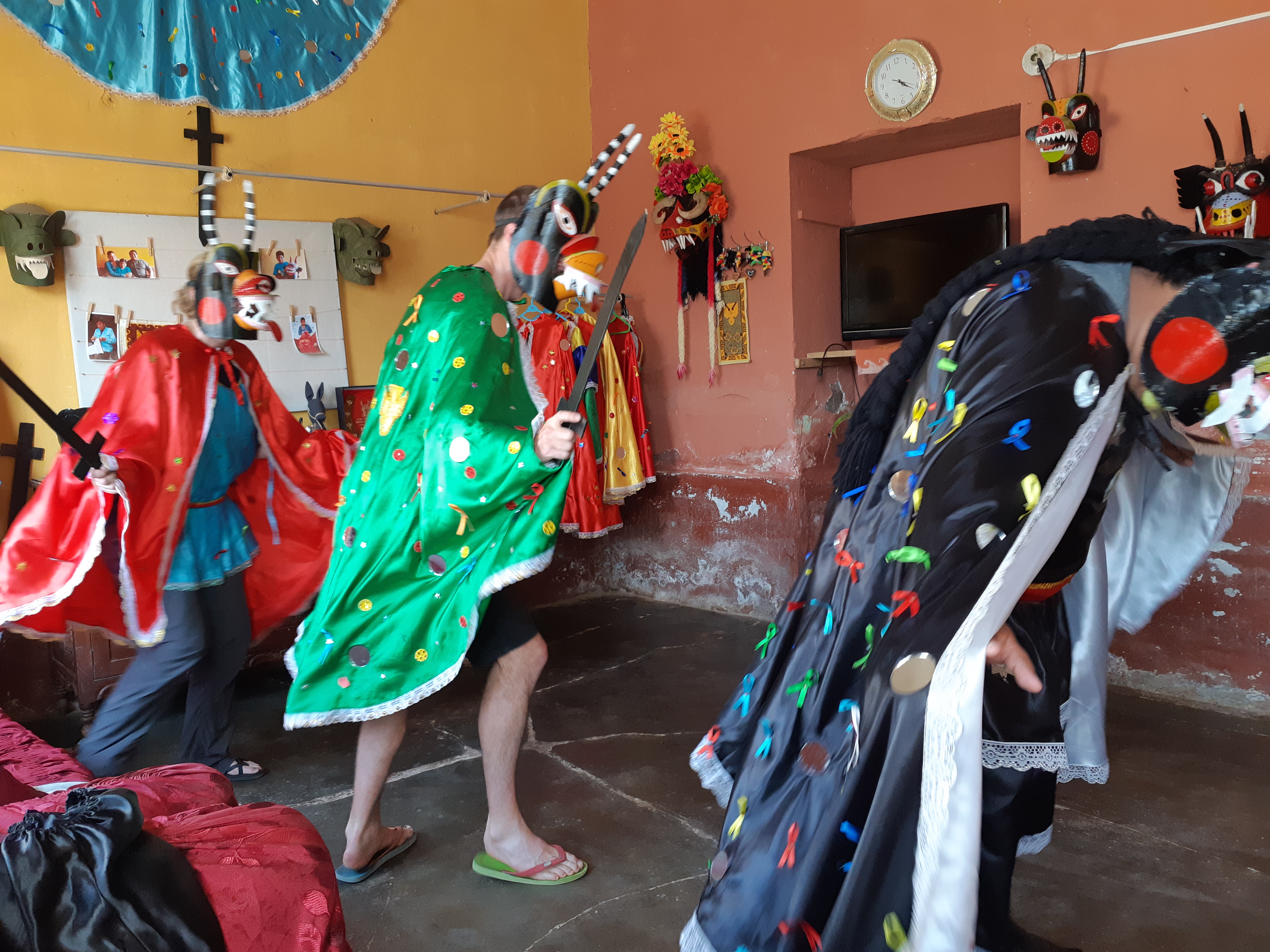
2nd day of activities in Tucume : Activity Pachamanca cuisine and dyeing on cotton
Pachamanca Cooking Class with Helena
This morning you, Helena will be here to greet you. She will present you some secrets of Mochica cuisine, one our our typical rural activities: Pachamanca cuisine. Helena will show you how to cook food that has been previously marinated for a long time. Then all the food is cooked in a jar of earth in the oven of adobe or dried earth.
Once cooked, the different ingredients will be arranged on presentation dishes. You can then enjoy in a rural setting and relax.
Discovery of new flavors guaranteed. Gourmets, this activity is for you !
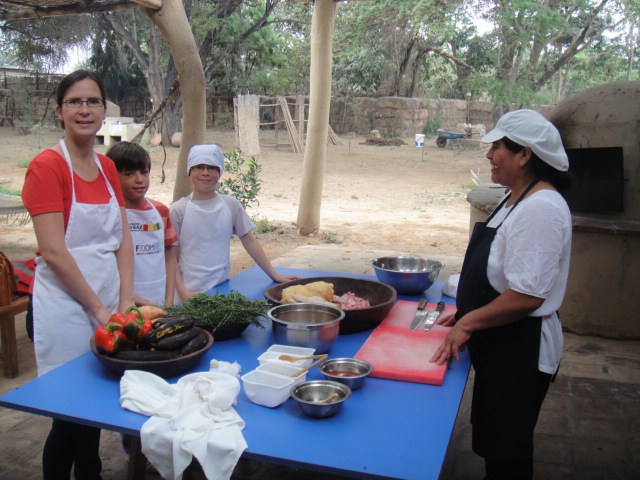
Activity Dyeing with Julian Bravo
For this afternoon you will go to the studio of Julian Bravo for the last our your rural activities. You will discover the traditional dyeing activity with this artisan of great talent.
You will learn how to achieve a natural color or the technique to create patterns. Julian will explain each step of the fabric dyeing to you. And you will make your own patterns on a fabric that you can take as a souvenir.
A fascinating activity by its ancestral technique that you will not see anywhere else.
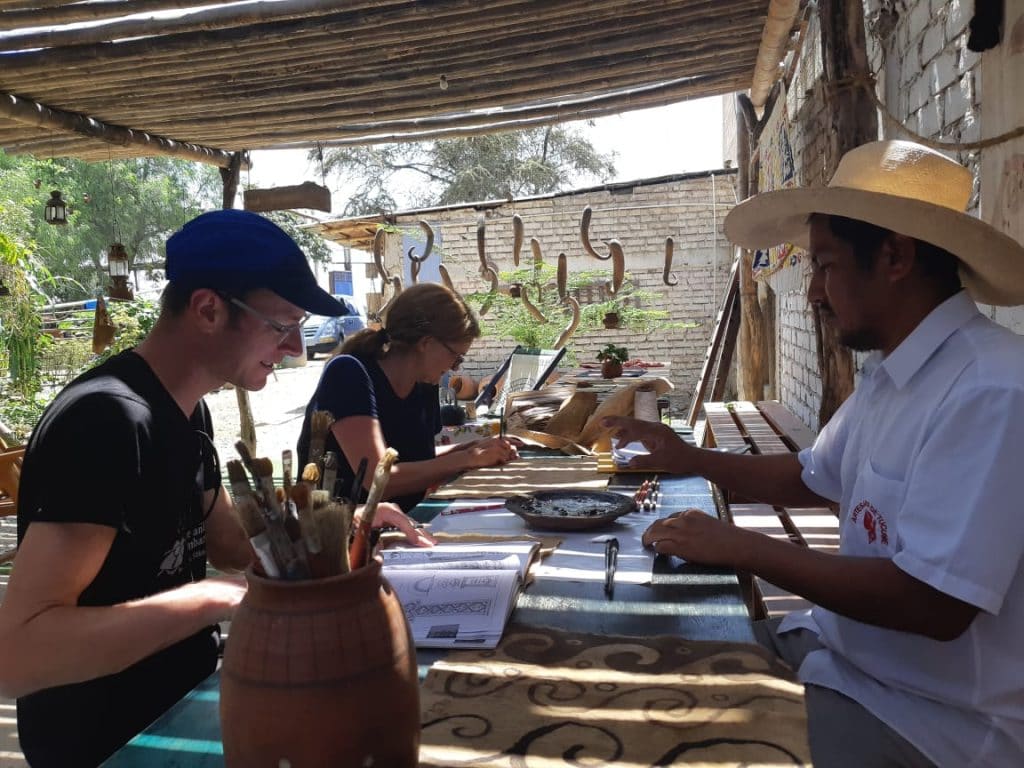
With these traditional rural activities, you will discover authentic Peru. You will come across a land rich in culture and the generosity of its inhabitants.
We propose activities in the villages with the aim of a fair development of the tourism economy. We do this not only in Tucume, but also in the Andean villages of Leymebamba and Cuispes. It’s about creating unforgettable memories for you. But another goal must be to help local communities in northern Peru. Through your visit, you help promote ancestral traditions and provide rural residents with additional income.



